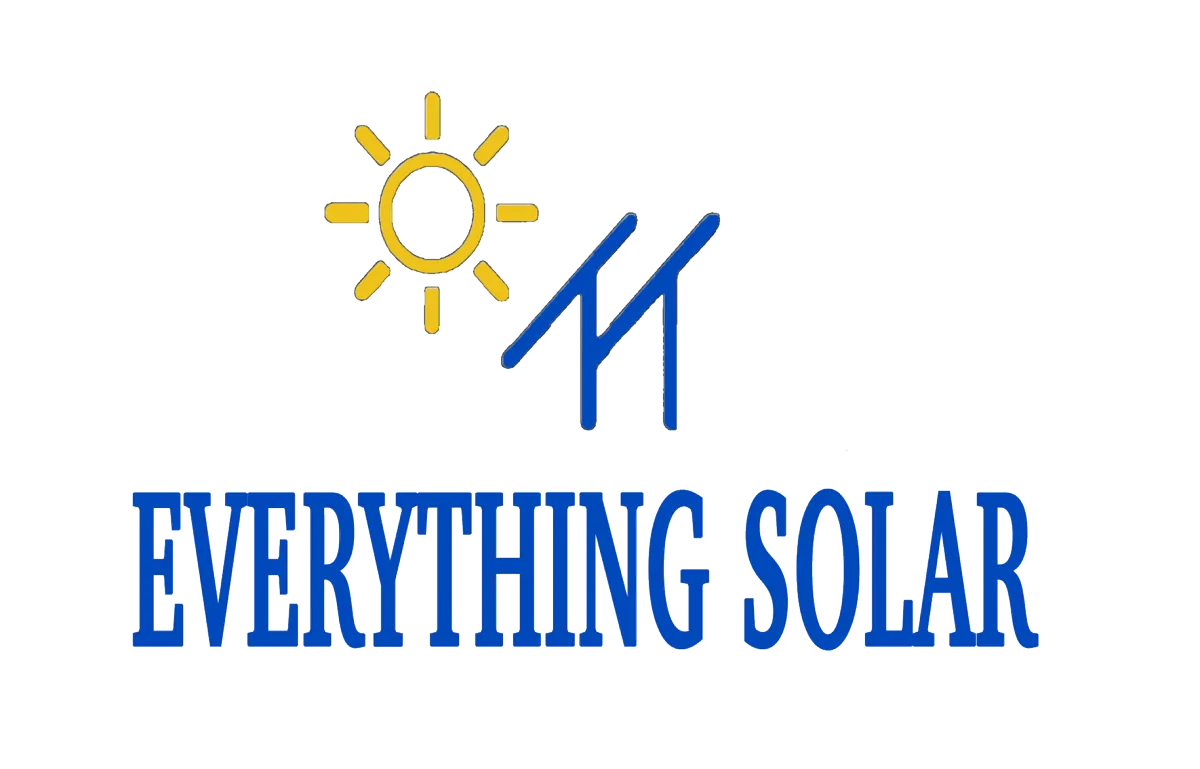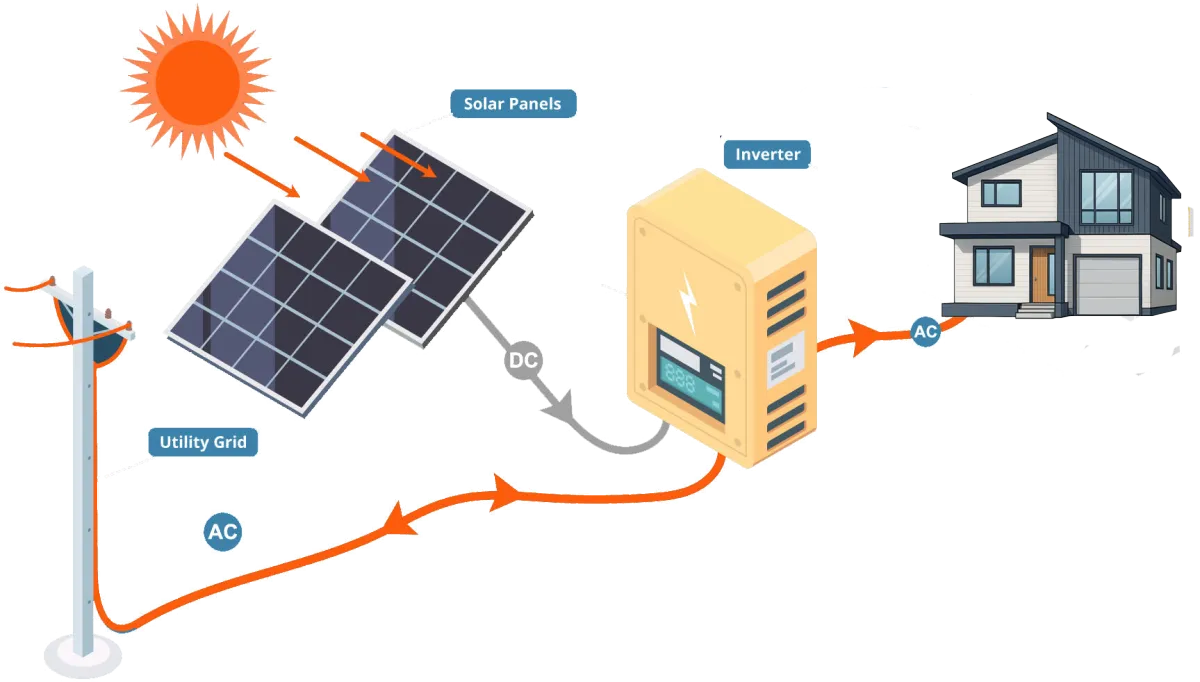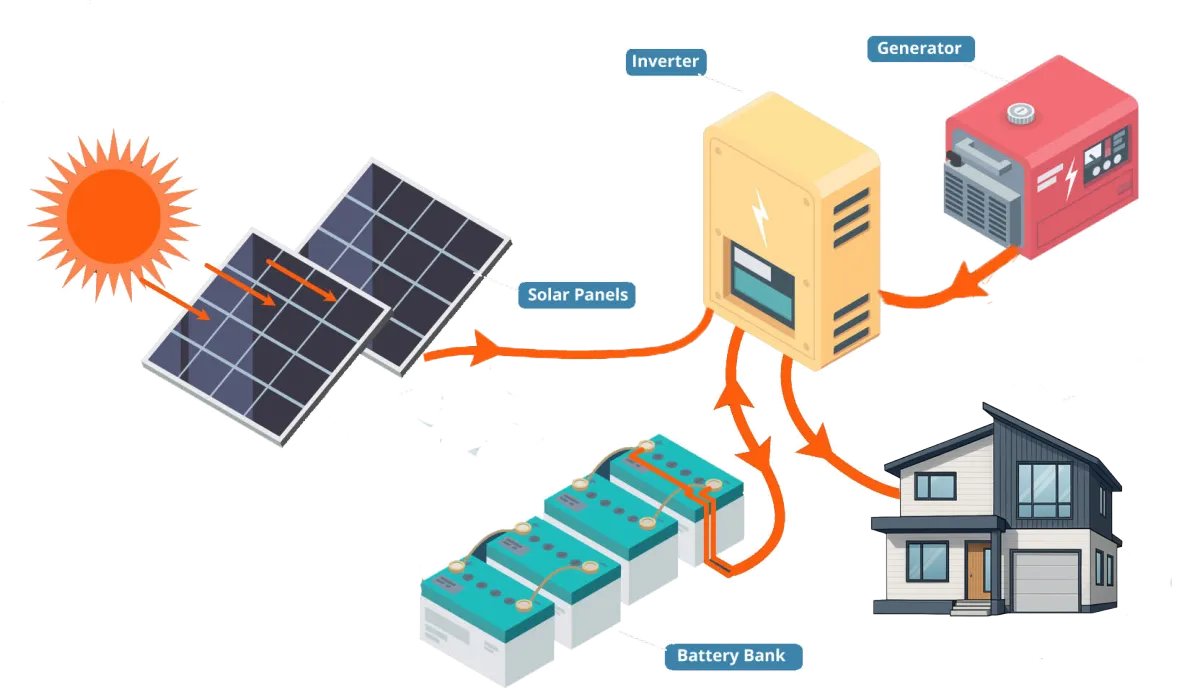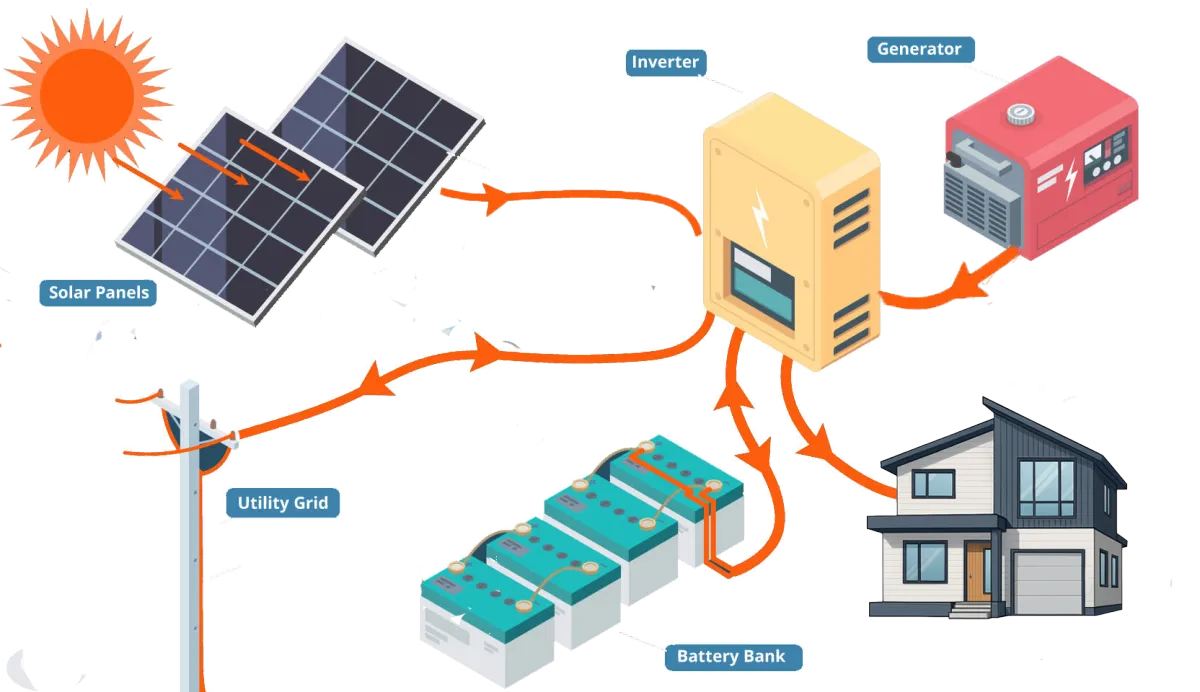
AR License: 0456650626
Residential Solar Installation
Are you interested in solar power as an alternative source of energy? Going solar can eliminate or significantly reduce your electric bill saving you 10’s of thousands of dollars over the life of the system. With the cost of energy rising so rapidly, there is no better way to fight inflation than producing your own electricity. Tax credits for both residential and commercial systems make the cost of going solar more affordable than it’s ever been.
We at Everything Solar will evaluate a range of products to determine the best solution for you, whether that be an on-grid, off-grid or hybrid solar system mounted on the roof or on the ground.
Lower Energy Bills
Installing solar panels lets you generate your own electricity on-site, offsetting up to 100% of your energy usage. Every kilowatt-hour you produce is one less you buy from the utility—meaning immediate savings on your electric bill.
Increased Home Value
Homes equipped with solar systems consistently sell faster and at higher prices than comparable properties without solar. Appraisers recognize the value of a permanently reduced energy bill, so your solar investment is “baked in” to your home’s market worth. In many markets, buyers are willing to pay a premium for move-in-ready clean energy, making solar panels one of the rare home upgrades that actually appreciate your asset.
Energy Independence
Solar panels give you greater control over your electricity supply. By producing power on-site, you become less vulnerable to rising utility rates, unpredictable fuel costs, and even grid outages. Pairing your solar array with a battery backup can keep essential circuits running during blackouts—so you stay powered when your neighbors are in the dark. That peace of mind and autonomy is priceless.
Environmental Impact
Residential solar is one of the most effective ways to shrink your household carbon footprint. A typical 10 kW system can eliminate roughly 7 tons of CO₂ emissions annually—equivalent to planting over 150 mature trees every year. By harnessing clean, renewable energy, you help reduce air pollution, conserve water, and slow climate change, leaving a healthier planet for future generations.
On-Grid Solar System
A large majority of solar panels on homes are considered “grid-tied,” which means that they’re “tied” to the local utility grid and rely on it to function. With the help of net metering or net billing programs, grid-tied systems can lower your home or business energy costs with minimal investment required.

Pros of Grid-tied Systems
Low upfront costs compared to off-grid and hybrid systems, grid-tied solar systems are typically installed with the lowest total costs.
Net metering and net billing participation means you remain connected to the utility grid, the excess electricity your panels produce can lower your monthly energy bills. Although policies vary by location and utility.
Grid-tied solar systems do not force your home to run on the sun alone—utility power remains available on your property.
Cons of Grid-tied Systems
No power during outages without a battery. If you experience a utility power outage, whether planned or unexpected, grid-tied solar panels will automatically shut off. Your solar panels must then remain shut down for the outage’s duration to protect those working to repair lines or restore power.
Though not usually excessive, grid-tied solar panels can be subject to more fees and regulations than off-grid solar systems. Before your system becomes operational, approval must be granted by the local building authority and energy utility before and after your installation.
Off-Grid Solar System
With the help of an energy storage battery or a generator, off-grid solar systems function independently as a sustainable source of electricity anywhere the sun shines. Off-grid systems are necessary in remote areas without access or reasonable cost to acquire utility power.

Pros of Off-Grid Systems
Off-grid solar systems are completely independent and suitable for remote locations.
Unconnected to utility power lines, off-grid systems are unaffected by fluctuations in energy prices or solar policies and will remain operational during local outages.
Cons of Off-Grid Systems
Higher upfront costs due to the hefty amount of storage required to back up an entire home, off-grid systems usually come with higher upfront costs than solar panels installed without a battery.
When completely off-grid, careful energy management is required to keep your home’s essentials running within the constraints of your battery reserve.
Hybrid Solar System
Offering the “best of both worlds,” a hybrid system refers to solar panels interconnected with the grid as well as a battery backup. Hybrid system popularity is accelerating, with grid-connected, battery-backed installations estimated to make up 28% of new distributed solar projects by 2028.

Pros of Hybrid Systems
A hybrid solar system can remain functional and deliver power to your home during a local grid outage.
In shifting between grid-tied and off-grid modes, hybrid systems provide high levels of control over your energy sources and costs.
Unlike an off-grid system, a hybrid system’s performance is not restricted by battery capacity alone; homeowners can purchase smaller or less expensive batteries for infrequent use.
Cons of Hybrid Systems
Higher upfront costs, battery storage and hybrid solar inverters can drive up total installation costs and limit potential return on investment (ROI).
With additional hardware on-site, hybrid systems require more installation space and increase the amount of potential points of failure.
Five-Step Installation Process
✅ Design & Proposal
Review system layout, performance projections, and financing options
✅ Permitting & Approvals
We secure building permits and utility interconnection agreements on your behalf.
✅ Installation Day
Our crew installs panels, mounts hardware, and connects wiring—typically completed within 1-2 days
✅ Inspection & Commissioning
Local inspectors and your utility verify compliance; we then activate your system.
✅ System Handover
You receive access to monitoring tools, warranty documents, and our 24/7 support line.
Why Hire Everything Solar?
✅ We show up when we say we will
✅ We do the work we promised — the right way
✅ We’re licensed, insured, and certified on the systems we service
✅ We stand behind our work with real support
Certified Installers of





